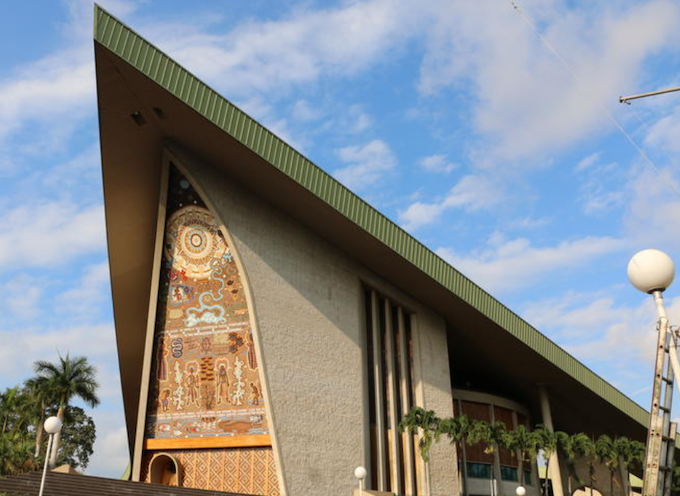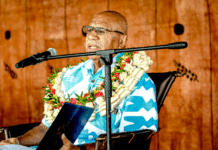
Papua New Guinea’s parliament has adjourned for almost four months, dashing an attempt to oust Prime Minister James Marape.
The adjournment allows Marape to avoid a no confidence vote.
Earlier, the opposition had tabled a motion of no confidence against Marape.
- READ MORE: Chaos in PNG politics as prime minister adjourns parliament, avoiding no confidence vote
- Covid rife in PNG’s Parliament precinct
The opposition listed the former prime minister Peter O’Neill as its nominee for alternate prime minister.
However, PNG’s constitution doesn’t allow confidence votes against a sitting prime minister in the 12 months before an election.
The country is due to go to the polls in July next year.
The opposition is expected to challenge the adjournment in court, with O’Neill alleging it was in breach of rules around parliament’s minimum number of sitting days.
Covid-19 outbreak
But the adjournment was deemed necessary by government after the announcement of figures indicating a quarter of staff at Parliament are infected with covid-19.
Papua New Guinea crossed the threshold of 10,000 covid-19 cases yesterday, with 91 known deaths. However, health officials believe the true number of cases is much higher.
Parliament’s speaker, Job Pomat, told MPs that from preliminary sampling of 167 people within the parliament precinct, 42 – or 25 percent of them – tested positive for the virus.
RNZ Pacific reports that most of those infected were staff rather than MPs, but several MPs tested positive earlier this year, and Pomat said the situation was serious.
ICYMI – Preliminary testing for Covid-19 among staff at Papua New Guinea’s parliament precinct indicates a quarter of them are infected.https://t.co/qJ6OJkFLu1
— RNZ Pacific (@RNZPacific) April 21, 2021
On the advice of the National Pandemic Response Controller, David Manning, Pomat said all staff and members were to undergo compulsory testing for the coronavirus.
Pomat said that prior to the letter he had already issued a similar directive.
“I have now issued further directives for compulsory testing to be conducted to both members of staff of parliament and political staff,” Pomat explained.
Another Vote of No Confidence is being lodged – former PM Peter O’Neill expected to be listed as the Opposition’s candidate for PM. https://t.co/YrU1vT1D3B
— Natalie Whiting (@Nat_Whiting) April 21, 2021
This article is republished under a community partnership agreement with RNZ.













































